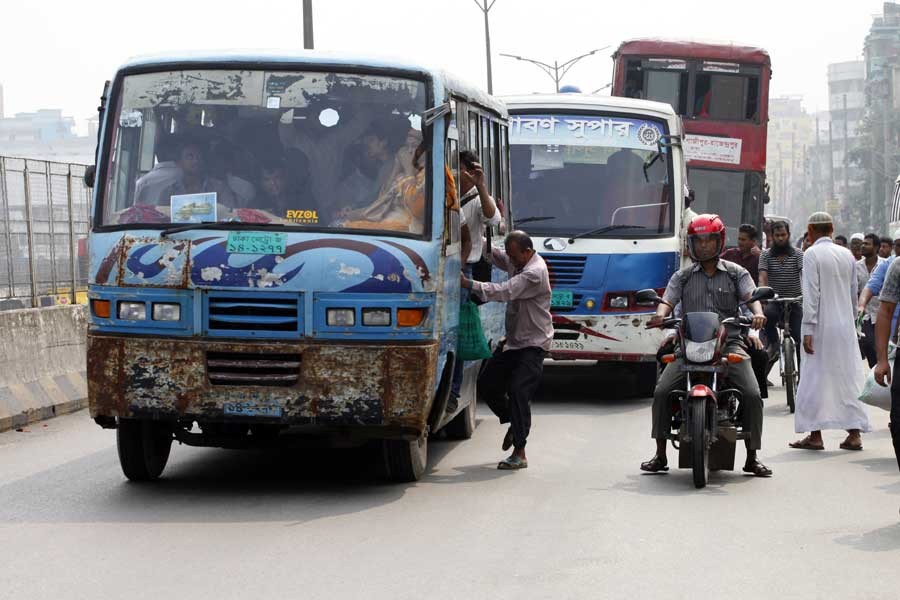During the period of an unprecedented pandemic of Covid-19, it is not desirable that the new national budget will provide a lofty package of commitment to extraordinary development. Instead, the rational expectation is that the annual public spending plan will pay adequate attention to different tools necessary to deal with the pandemic. The budget for the fiscal year 2020-21, (FY21) placed by the finance minister AHM Mustafa Kamal in national parliament on Thursday, needs to be reviewed against this backdrop.
The spread of infection and weak health infrastructure of the country already made it clear that there is no alternative to strengthen the different preventative measures. While revamping the health infrastructure will take some time, more focus on WASH (water, sanitation, hygiene) sector was much warranted.
Again, another important area is ensuring safety and hygiene in people's mobility through public transport system. This is an area neglected for long. This scribe, in this column, earlier wrote a number of pieces depicting the terrible state of Dhaka's public transport and endless sufferings of thousands of daily commuters. The distorted and unsafe public transport dominated by ramshackle buses and minibuses in Dhaka is a nightmare for the commuters. Though a number of attempts were taken to revamp the public transport in the past, all went in vain. In fact, the measures were either flawed or half-heartedly tried to be implemented. Failure of the trial run of circular bus service is an example.
In FY20, the original budget for the 'transport and communication' sector was Tk 648.29 billion, an increase of 31.0 per cent over FY19's revised budget of Tk 492 billion. The new budget for FY21, placed in national parliament on Thursday afternoon, allocated Tk 645.87 billion for the sector. But, enhanced allocation on the sector is not an assurance of higher allocation for an efficient public transport. A public transport system can be efficient only when it is cost-effective, safe and decent. There is no reflection on these in the budget.
The finance minister in last year's budget speech said that to 'establish a planned and integrated modern public transport system in Dhaka and the adjacent areas,' the government was 'implementing the Revised Strategic Transport Plan (2015-35).' As part of the implementation, he also mentioned the construction of first metro-rail line and bus rapid transit (BRT). While metro-rail is likely to be an effective public transport, BRT will bring a disaster.
Interestingly, on Thursday's (June 11) budget speech, he repeated the same thing adding the progress of metro rail line and BRT construction. He also added that construction of two more metro rail network will start in the next fiscal year. He further added that 'to ensure road safety', measures have been taken to mark 2,550 kilometers of highways and remove eye-sight barriers/trees at the intersections of 1,950 kilometers of highways.
The finance minister also focused on mega projects like Karnaphuli Tunnel and Elevated Express Way. It has already proved that these and other mega communication infrastructure projects are banking on incremental costs. The long-term positive impacts of most of the projects also face some uneasy questions. By not focusing on decent, affordable and hygienic public transports in the budget during the pandemic, the finance minister has lost an opportunity to revamp the city's as well as the country's bus-based public transport system.


